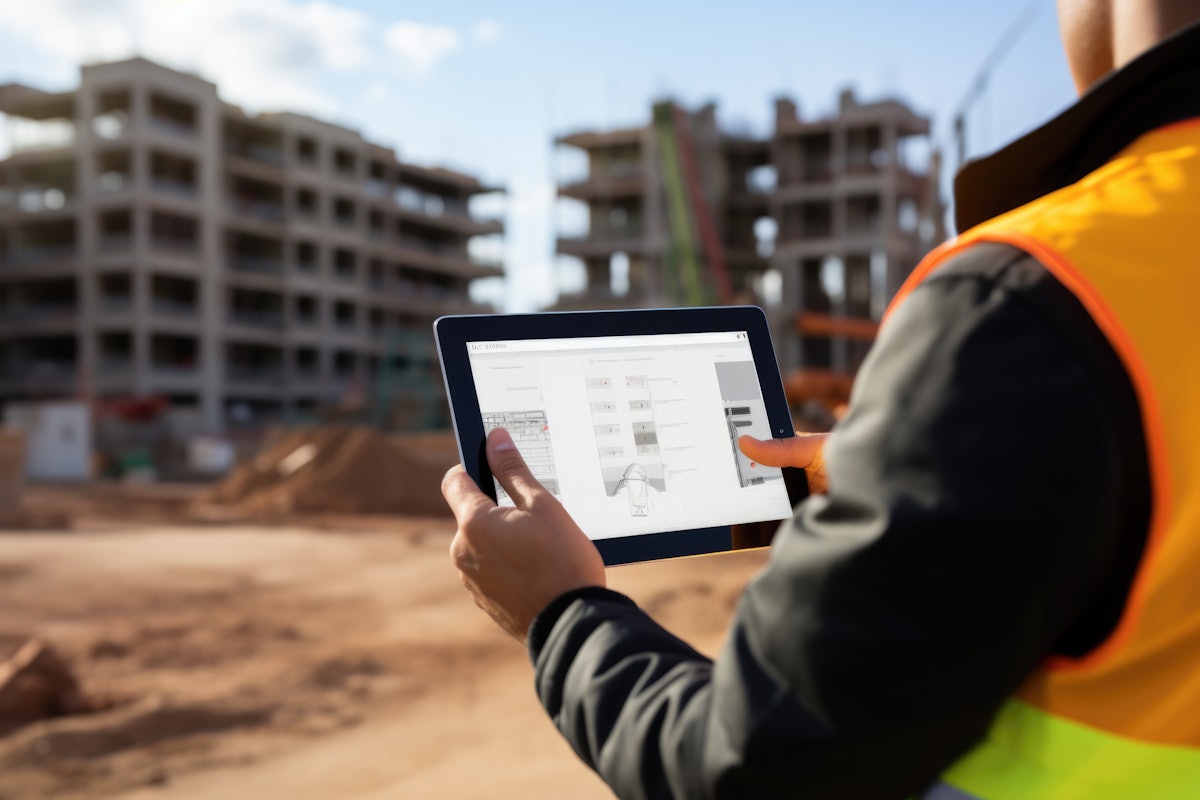The implementation of dedicated ERP, CRM, LMS and other enterprise-level systems can help construction companies optimize different administrative and customer-facing processes to make their businesses more productive and cost-efficient. This article highlights five common types of construction software systems that can improve your enterprise operations.
1. Construction ERP
Enterprise resource planning (ERP) systems enable construction companies to consolidate data from various day-to-day business processes, from project and contractor management to inventory tracking and accounting. Automating data consolidation, ERP systems facilitate project management, optimize enterprise resource and equipment utilization, help construction companies with data-driven decision-making, and promote collaboration across different back-office teams.
Key capabilities:
A dedicated construction ERP system facilitates the onboarding of new contractors and subcontractors, creation and issuance work orders for these contractors and automation of contractor invoicing processes.
Construction ERP systems streamline planning and scheduling of construction projects, including calculation of project budgets and resource requirements and tracking project progress after the kick-off.
- Inventory and warehouse management
Construction ERP software enables companies to track the location and level of its inventory in real-time, get automatic notifications about low stock levels, accurately forecast its future inventory needs and manage and optimize its warehousing space and costs.
Construction ERP allows companies to manage their cash inflows and outflows by helping track purchase orders, manage payments and invoices, accurately forecast profits and losses and automate financial report generation.
2. Construction CRM
Customer relationship management (CRM) systems help construction companies manage key customer-facing processes, such as marketing, customer service, and sales. A CRM system also centralizes customer data gathered by a construction company across different sources, which helps teams get a single view of their customers and provide them with more personalized services.
Key capabilities:
A construction CRM system stores all customers’ contact information, including email addresses, phone numbers, and social media profiles, and automatically synchronizes new data or customer interactions for each contact.
- Omni-channel customer engagement
A dedicated CRM system also allows construction companies to integrate multiple customer engagement channels, such as websites, mobile apps, and social networks, to provide customers with more personalized and consistent experiences.
The analytical functionality embedded into a construction CRM system allows sales specialists to estimate the company’s revenue for the coming weeks or months based on the analysis of historical sales data.
3. Construction web portals
A construction web portal serves as a central hub for information exchange between a construction company and its clients, contractors or suppliers. The primary function of such a portal in a construction company is to provide real-time communication and secure data exchange between different parties.
Key capabilities:
- Enterprise content management
A construction web portal facilitates the creation and management of web content, including content generation templates, automated content publishing functionality and version control.
A reliable construction web portal enables communication between a company and its customers or partners via chats, forums and video conferencing tools.
- Customer support and self-service
Construction web portal solutions also encompass ticketing systems, knowledge bases, live chats, and other capabilities enabling companies to provide customers and partners with timely assistance.
4. Construction learning management system
By implementing a dedicated learning management system (LMS), construction companies create, distribute and administer training and educational programs. In the long run, an LMS can greatly simplify the organization and control of knowledge and improve staff training, which can be critical given the growing lack of skilled specialists in the industry.
Key capabilities:
- Learning content management
A reliable construction LMS system features all necessary tools for creating and managing learning content in different formats, including online course editors, collaborative authoring, course catalogs and other capabilities.
- Learning tracking and assessment
Construction LMS software provides functionality for tracking learners’ course activities, such as attendance, training activity and video exam monitoring, and other tools.
- Interactive learning experiences
A construction LMS should also include functionality that helps companies provide more engaging learning experiences, including gamification, social learning or microlearning capabilities.
5. Construction data analytics & BI
Data analytics and business intelligence (BI) solutions help construction companies consolidate data stored across disparate systems, analyze it and generate meaningful insights from it, thus improving decision-making at both tactical and strategic business levels.
Key capabilities:
Construction data analytics and business intelligence solutions provide capabilities that allow users to find and access the data they need from a company’s storage systems via full-text search, voice search and metadata search.
Robust data analytics and BI solutions provide data visualization tools that help users translate complex insights into a more convenient and easy-to-understand format, such as graphs, charts or maps.
- AI & ML-powered analytics
Construction BI systems augmented with AI and ML technologies can provide users with more advanced analytics capabilities, such as predictive analytics, which can be used to anticipate potential project delays or equipment maintenance needs.
Final thoughts
Managing a construction business can be very challenging, especially if the company is growing rapidly and the complexity of back-office and front-office processes increases. Enterprise software, such as ERP systems, CRM tools, and web portals, allows companies to address these challenges and optimize their business performance at multiple levels.
Nonetheless, navigating the enterprise software landscape and choosing the right solution can be too daunting for your in-house team, so consider hiring professional construction software developers for your project. These specialists will analyze your company’s requirements and deliver a suitable enterprise solution, customizing an out-of-the-box platform or building it from scratch to help you get the software fully tailored to your unique needs.
View the original article and our Inspiration here


Leave a Reply